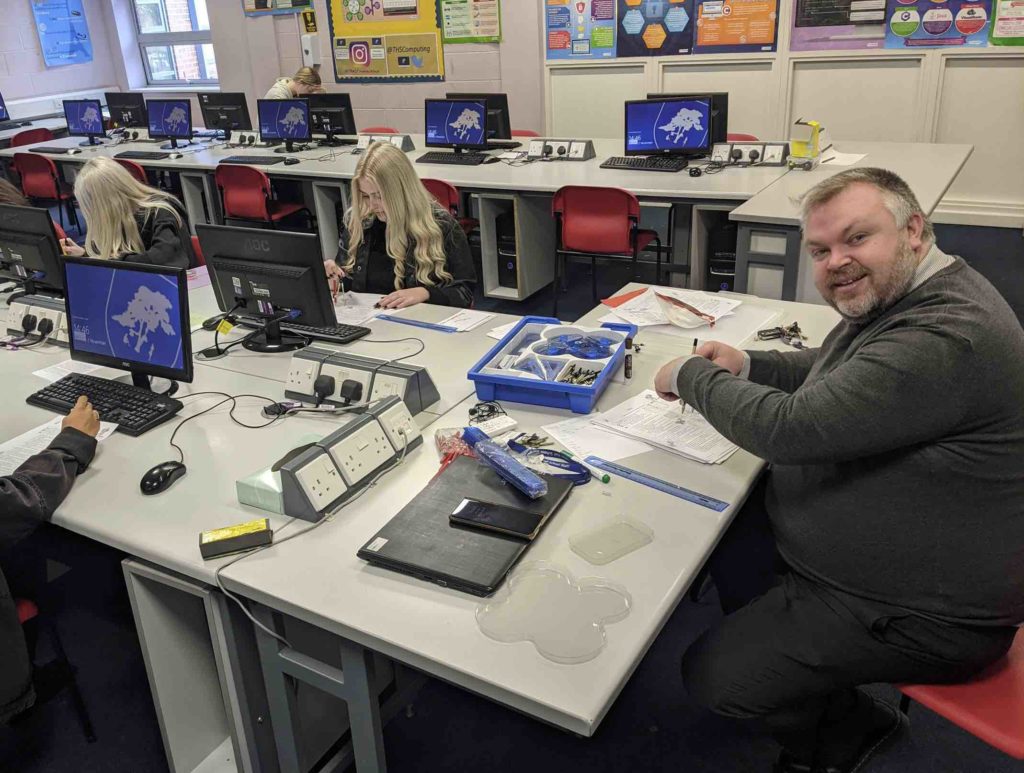With the UK still in the throws of lockdown, the weeks ahead are uncertain and, as a result, filled with anxiety for the thousands of people in the UK facing the prospect of redundancy as businesses struggle to survive.
While these are uncertain and fearful times, I believe that the challenges faced can also be a catalyst for positive change and an opportunity to change career direction (or to connect with a long-held ambition and finally listen to that inner voice).
Ten years ago, I myself felt ‘stuck’ in a corporate job and was deeply unhappy and unfulfilled in my career. My unhappiness was such that I took a leap of faith, resigned from my job and took a five-month unpaid career break in Sydney, Australia, to find my calling and have never looked back.
I understand many of the fears and anxieties that my clients feel at the early stages of their career change journey. And I can say, with total confidence, that there is a way through them. Over the course of my career, I have left three good full-time jobs with nothing else to go into. I have tested my faith in myself and in something better being out there and have found that when you leap, the net does indeed appear! “
Right now, you may be feeling despair. Will you find another job? How will you find a job? But, this can also be an opportunity to follow a long-held career dream – whether that’s starting a business or retraining. It’s also an opportunity to work out what is important to you and reprioritise your life for greater happiness and fulfilment.
10 Steps to making a post redundancy career change
There are no magic wands when it comes to changing careers, but there are many helpful steps that you can take.
1. Take a moment of quiet
Considering a career change is important and it deserves your focus. There is so much noise and frantic energy around right now, that before you start setting goals or launching into action mode, it’s good to take even just 10 minutes of quiet. Sit in a calm space and think about what you want to achieve in your career, or go for an undistracted walk in nature and see what inspiration or guidance comes.
2. Set an intention around what you do want
Instead of getting caught up in the things you don’t want, set an intention around the things you do want from your new career. For instance, if you want to feel less stressed at work, then set an intention for the feeling of calm. If you’d love to stop worrying about money, then set an intention of money to start flowing for you.
What would you love to be saying to family and friends or colleagues in six weeks’ time? How would you like to be feeling in your next job?
3. Set some goals and make them visible
Make a note of your goals for your new working life. This is a contract you are making with yourself and writing it down makes it more tangible and official. You could take it one stage further and create a vision board. If one of your goals is better balance, what does that look like – for example, are you taking your family on a holiday? Are you spending more time on your hobbies?
When you’ve finished, pin your vision board on your noticeboard or on your wall in a place where you are likely to see it regularly so that it seeps into your subconscious and serves as a constant reminder.
4. Feel the feelings now
Your goals or ambitions will not happen on their own. A really powerful way to supercharge your goal is to feel the feeling of having achieved it before you’ve actually done it. Are you going to feel excited? Calm? Fulfilled? Each goal may bring you something different. Getting behind the feeling will bring you more motivation which will help you stay on track in pursuing your career goals.
5. Take a self-inventory
If you’ve decided a full-scale career change is in order, you will need to evaluate your values, skills, personality, and interests. Take a full self-inventory, considering all the jobs and projects you have been involved in and the experiences you have had both in and out of work. This will involve listing your transferable skills, knowledge, personal strengths and super powers! Trust me you have one! (My super power is my intuition).
By doing this you will gain self-confidence and it will give you greater clarity on potential career options.
6. Shortlist your options
Based on your values, skills and passions (or what your inner voice is telling you) consider what your ideal roles are and then create a shortlist of options. For each role on your list, you can then research the job description, educational and other requirements, job outlook, advancement opportunities, and earnings.
7. Test the waters
Speak to people already doing the jobs. Could you secure some work experience with them or perhaps do some voluntary work to test the waters? Approach your research with an open mind and learn from each experience. What did / didn’t you like? Which other sectors or jobs would offer the bits you enjoyed? This will enable you to narrow down your list of possible careers and focus.
8. Give yourself some breathing space
This is not a process that can be done overnight. Often, a career change takes some really deep soul searching to understand what is important to you. We are programmed from school to chase money and career progression, but maybe that is not for you. For instance, maybe your passion is dog walking. This could be where you will find happiness and fulfilment in your life and career.
9. Take small steps, even imperfect ones
Approach your career change like a road trip. It would be mad to set off without having programmed your Satnav; you’d likely get lost. Your career change is no different. Having a solid plan mapped out with contingencies in place will make the journey as smooth as possible.
10. Trust Your Instincts
Having confidence in your own gut instinct is so important. Use your gut feelings as a guiding compass during a career change.
Case Study: Graham Walton - Swapping board meetings for the classroom

This year marks the tenth anniversary of Graham Walton becoming a teacher.
Faced with redundancy 11 years ago, Graham Walker made the bold decision to leave industry and retrain as a teacher aged 36.
At the time Graham was a senior marketing manager with a young family, but a job move a year earlier had caused him to question whether the career was for him. Redundancy for him proved an opportunity to change career.
After leaving university with a degree in maths and business management, Graham found himself working for a large electrical company as a marketing manager. He was with the firm for 10 years, travelling all over the world until he was lured to a better paid job at a smaller company.
“Within the first four weeks of starting at the company I thought ‘what have I done?’ Everything I loved about my job – being part of a large team, managing my own time and the dynamic environment, had gone when I moved to a small company.”
Graham stayed with the company for a year, stuck in a job he didn’t like yet fearful to move because the economy had started to dip. However, the inevitable happened and he was made redundant during a recession.
“At the time there were ads on TV urging people to ‘turn their talent to teaching’. It was a scary thought, but I realised that during my career I had made a lot of money for other people but had gained no self-satisfaction. The opportunity that teaching would give me to help others really made me think.
“It occurred to me that I could use my small redundancy pay-out to take a year out and retrain. I saw it as an opportunity to start at the bottom of another career ladder.”
Graham’s first step was to gain work experience. He went to his children’s primary school and volunteered. “I hated it! Not the actual teaching but more the age of the children. The experience helped me decide that my skills were better suited to secondary teaching. There was also more opportunity for career progression in a larger school.
“I also realised I had a lot of transferable skills and life experience to bring to teaching. This gave me confidence both during the course and in the classroom. For instance, presenting at a senior board meeting is no different to standing up in front of a class of teenagers.”
He successfully completed his teacher training and was appointed as a maths teacher at Tupton Hall School, where he has progressed to Head of Maths. “Tupton is a big secondary school, so it has the same feel of a large organisation which I enjoy being part of. However, rather than dealing with products and services, I am now dealing with people and each of them has different outputs. You don’t get that in industry.”
The one thing industry and teaching have in common however is the volume of work. “Teaching has given me a different work/life balance. In industry I was travelling a lot and working away. Now I am at home, still working, but I get to see more of my family albeit from behind a laptop.”
Despite the current pressures, I enjoy teaching. It’s fulfilling. I don’t think anything in industry could have made me feel like I did the other day when my daughter came across me on a teachers’ review website. A former pupil had written ‘I wish everybody would believe in me like Mr Walker did.”
It’s a career change I don’t regret making.
Case Study: Jenny Exford – From driving 1000 miles a week to a new career in dog walking

After nearly 15 years in retail and reaching the role of regional manager for a national retail chain, Jenny Exford was forced to think about what she truly wanted from her career and life and it led to her establishing her own business.
“I had set myself the goal of reaching the position of regional manager by the time I was 35 years old and I did. Then my eldest sister passed away suddenly, and it was a complete wake up call. I realised that I’d put my job before my life and everyone in it.”
In the job, Jenny travelled 1,000 miles a week giving her little quality time for the things she loved – her family and animals.
After re-evaluating her priorities Jenny realised that the two were not compatible. “I could either be a corporate success or the person I wanted to be. I was never going to find my happiness being part of the rat race.”
Jenny’s first love had always been animals and so, with the support of her fiancé and the promise of part time work at her local stables and pub, Jenny took the bold decision to leave her job and work out what she truly wanted to do in her career.
“It was a complete step into the unknown. I was not only leaving a stable job and good salary, but I was also giving up a whole raft of financial benefits, including a company car and mobile phone.”
It was while working at the stables, that Jenny discovered her new career path. “The owner of the stables asked if I could help with walking her four dogs which I did. I have two dogs of my own and it dawned on me that I could get paid to do tasks I enjoyed. It was a revelation.”
Jenny established Happy Paws and has an ever-expanding client list thanks to lockdown. “Lots of people have got puppies during lockdown which they haven’t been unable to socialise so, they are bringing them to me one day a week for the vital interaction with other animals that they need.”
“My career change has allowed me to focus on the things I truly care about. I have lost 2 stones, get to see my family and friends regularly and every day I walk through beautiful scenery. I am active, healthy and most importantly, happy.”
NEED SOME EXTRA SUPPORT?
If you’re going through a redundancy and need some support to help you clarify what’s next and how to get there, then come on a Coaching Taster Session with me.
We can have a chat about what’s going on for you and give you a few ideas on how you can start moving forward.

